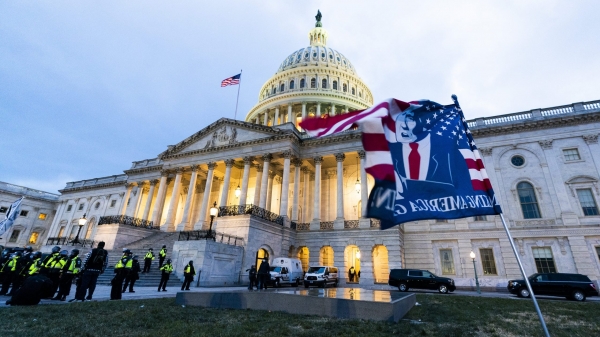By Dr. Henry C. Mabry
The Alabama Senate passed an austere State General Fund Budget that has many agencies mostly level-funded. Medicaid, under the Senate-passed version of the budget, is proposed to be level funded after the agency requested $156 million more from the State General Fund, and after Gov. Robert Bentley requested an additional $100 million. Mental Health, the Department of Human Resources, and the Department of Public Health are to receive more funding under the Senate-passed budget.
Do the agencies need more money from the State General Fund? The answer is that it depends upon where a person sits. Alabamians have seen lackluster personal growth over the past decade, and there remains no appetite to raise taxes. There is relatively little public outcry to increase State services or expand State government. The general consensus appears to be that no new money is needed for State government expansion.
What about needed money for existing state services? Keeping state services operating at the same level year after year requires more money because of inflation and federal requirements. There is normal inflation concerning items like food and utility costs, and there are other forms of inflation, like medical inflation, which is traditionally much higher than normal inflation. Food costs, for instance, increased less than one percent over the past year, whereas medical care costs increased three percent.
These are not big percentages, but when the State General Fund grows little, if any, and level funding is the case for agencies like Medicaid, services are curtailed just because of inflationary pressure. Medicaid is a $6 billion program, and three percent amounts to $180 million, just for inflation. This does not take into account the open ended nature of Medicaid concerning enrollees. The federal government requires services to be provided to any eligible person based upon poverty criteria, and Alabama enrollment has grown substantially over the past decade thanks, in part, to the overall state of the economy.
Alabama Medicaid has kept expenses down over the past decade as compared to other states; however, inflation and enrollment growth continue to put pressure on programs, and it is evident that many Medicaid funded programs have not kept up with normal costs and enrollment changes.
Does Medicaid need more money to continue the same level of care for its beneficiaries? The basic math says yes. Are there ways to mitigate this need without raising taxes? The answer is also yes.
The State General Fund has traditionally experienced difficulty thanks to the mix of revenues that make up the State General Fund. Revenues typically have grown just one or two percent a year while agency costs have increased more than revenue growth and this has been largely due to increases in healthcare costs. Alabama is no different than any other state as far as medical cost increasing pressure upon state finances; however, Alabama’s State General Fund revenues are more stagnant, although more predictable, than other states.
Every administration faces the same state government funding dilemma. Every administration is forced to make do unless revenues are raised to plug holes. This was the case before Gov. George Wallace, during Gov. George Wallace’s era, and just as it was during the administrations of Gov. Fob James, Gov. Guy Hunt, Gov. Don Siegelman, Gov. Bob Riley, and now Gov. Robert Bentley. Tax and government reform efforts in 1939, 1957, 1990, 1992, 1999, and 2003 each sought to modify state government financing. Other efforts to raise revenue have also peppered the historic landscape.
Making do is usually the order of the day. During the Siegelman Administration, we generally had to make do with what we had because Governor Siegelman was against raising taxes. In 2001 and 2002, in particular, we had to develop ways to produce more revenue without raising taxes to get on the road to compliance concerning federal court mandates in the DHR R.C. case and in the Mental Health Wyatt case. With the exceptional help of then-Commissioners Mike Lewis, Bill Fuller, and Kathy Sawyer, and their able staffs, we were able to generate $100 million or so in extra non-tax money by modifying how business was conducted concerning some healthcare-related services.
Today, similar approaches can be taken to generate non-tax revenue to satisfy current and future State health care delivery needs. While we were able to find an extra $100 million over a decade ago, state agencies today could, if done correctly, produce an extra $250 million a year, or more, for State needs.
This is not to say State agencies are not getting the job done because they do every day. Agencies have been doing more with less for years and years with less money, more red tape, and more federal demands and unfunded mandates. This is to say that using more collaboration and developing more creative approaches to service delivery could produce more resources for the agencies facing the most financial pressure.
The Senate passed a make do budget, and the House of Representatives may pass something similar. Alabama lawmakers are required to pass a balanced budget and they will do so or the State General Fund will face proration. If a lack of political will exists concerning raising revenue, and if agencies need more than appropriated, then no other alternatives exist other than cutting services, redirecting funds, or finding non-tax new money. Alternative solutions do exist, but whether State leaders choose to pursue such alternatives is up to them.
Dr. Henry C. Mabry served as State Finance Director from 1999-2003. He currently heads Mabry & Co., and can be reached at henrycmabry@aol.com























































